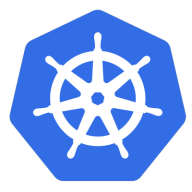

Find out what your peers are saying about Microsoft, Amazon Web Services (AWS), Akamai and others in Infrastructure as a Service Clouds (IaaS).
What earlier required manual coordination and took thirty to forty minutes per release is now usually completed within ten to fifteen minutes.
We receive revenue and returns from its deployment due to improved services and applications.
I have seen a return on investment, and the metrics in return for the investment are very fast.
They respond with relevant and easy-to-follow solutions.
They were very responsive to my issue.
In addition to official support, Kubernetes community ecosystem is very strong.
The application is stable, and I seldom require support.
For my usage, which is a small business, I rate the scalability of Akamai Connected Cloud (Linode) around nine or ten.
Overall, Kubernetes gives a lot of flexibility to handle growth and spikes without re-architecting the system.
Kubernetes is highly scalable, earning a rating of eight out of ten.
By using horizontal pod autoscalers, Kubernetes automatically adjusts the number of pods based on CPU, memory usage, or other metrics.
As long as best practices are followed, such as proper resource limits, health checks, and monitoring, Kubernetes provides a stable foundation for production workloads.
Our organization performs robust testing before sending changes to production, ensuring the stability of Kubernetes in live environments.
Kubernetes offers high stability, allowing for easy scaling of ports and containers.
The main area for improvement is the lack of a backup feature to the local hard disk or storage.
The main improvement I would like to see from Akamai Connected Cloud (Linode) is the ability to duplicate the server as it is and initialize a new one with the same features.
It would be useful to have the option to sort or group by tags on the domains page.
Kubernetes is a very mature and reliable platform, and the benefits clearly outweigh the limitations for most production use cases.
Improved documentation would help in gaining scalable knowledge and making it more understandable.
After the upgrade, some pods were not up as expected, leading to downtime.
I find Akamai Connected Cloud (Linode)'s pricing very competitive.
Kubernetes itself is open source and free, so there is no licensing cost for the software.
Since we use Kubernetes on-premises, the costs are related to our expertise and the personnel we hire.
the setup costs are high.
Akamai Connected Cloud (Linode) is easy to use and has a fair price, making it accessible and straightforward, which is crucial when compared to other complex solutions.
Their support is really good. I can ask anything at any time, and they are able to resolve issues like reinstating deleted Linodes.
Akamai Connected Cloud (Linode) is cheaper.
Kubernetes also offers rollback control and auto-scaling capabilities, which are crucial for maintaining an application's availability even if nodes or pods go down.
The feature that stands out most for me is self-healing. If a pod crashes or a node fails, Kubernetes automatically recreates the pod and maintains the desired state.
For us, having fast storage classes is very important.
| Product | Market Share (%) |
|---|---|
| Akamai Connected Cloud (Linode) | 9.8% |
| Amazon AWS | 17.1% |
| Microsoft Azure | 10.2% |
| Other | 62.9% |
| Product | Market Share (%) |
|---|---|
| Kubernetes | 6.9% |
| Red Hat OpenShift Container Platform | 17.7% |
| Amazon EKS | 12.8% |
| Other | 62.599999999999994% |

| Company Size | Count |
|---|---|
| Small Business | 29 |
| Midsize Enterprise | 3 |
| Large Enterprise | 1 |
| Company Size | Count |
|---|---|
| Small Business | 26 |
| Midsize Enterprise | 10 |
| Large Enterprise | 47 |
Linode Pricing Page
CPU, transfer, storage, and RAM bundled into one simple price.
Kubernetes (K8s) is an open-source system for automating deployment, scaling, and management of containerized applications.
It groups containers that make up an application into logical units for easy management and discovery. Kubernetes builds upon 15 years of experience of running production workloads at Google, combined with best-of-breed ideas and practices from the community.
We monitor all Infrastructure as a Service Clouds (IaaS) reviews to prevent fraudulent reviews and keep review quality high. We do not post reviews by company employees or direct competitors. We validate each review for authenticity via cross-reference with LinkedIn, and personal follow-up with the reviewer when necessary.